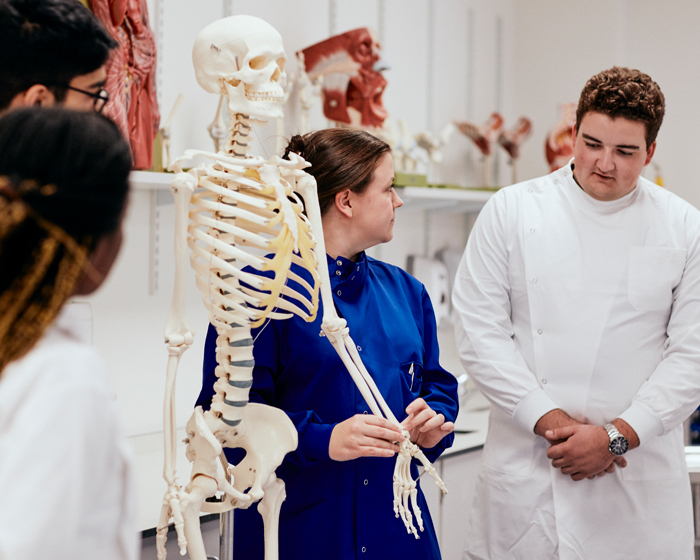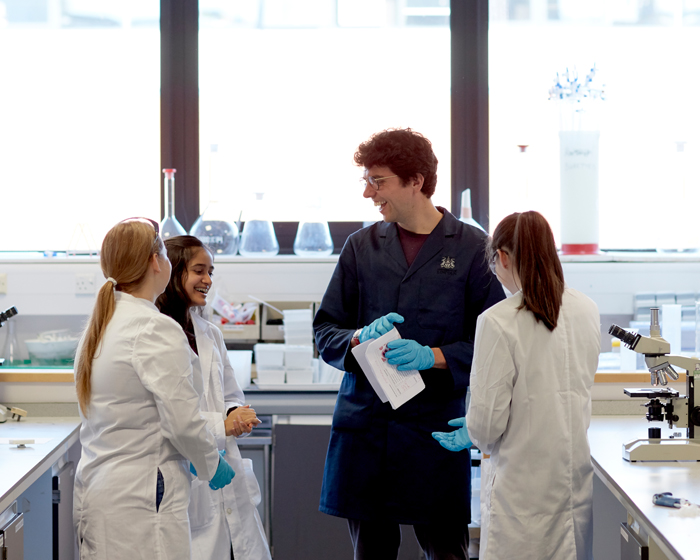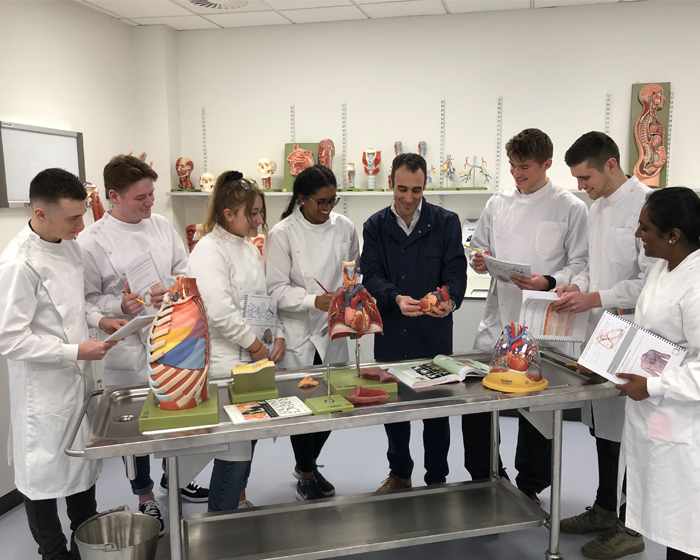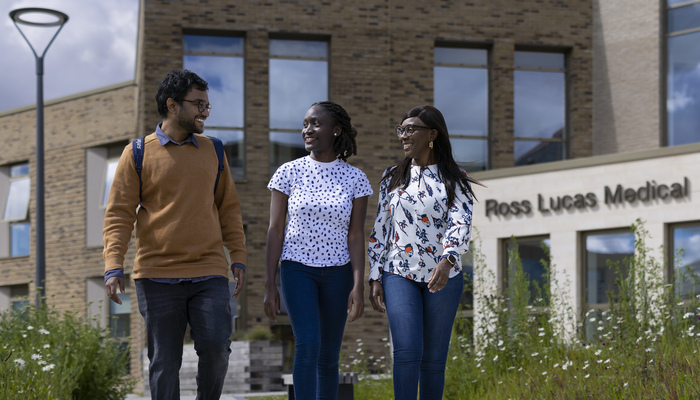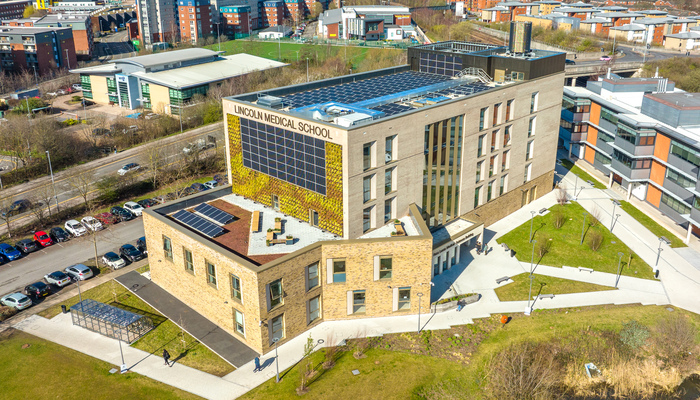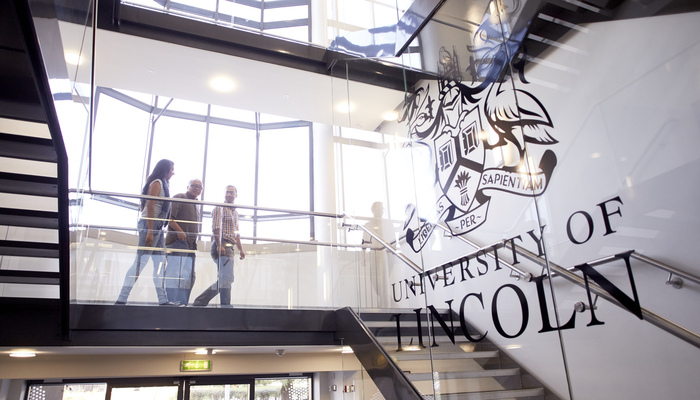Welcome
Welcome to Lincoln Medical School, a partnership between the universities of Nottingham and Lincoln. The School delivers the University of Nottingham’s Medicine and Medicine with Foundation Year degree programmes, enhanced with a Lincolnshire flavour. The courses are taught at the University of Lincoln's Brayford Pool Campus and students have access to specialist teaching facilities. The brand new purpose-built Ross Lucas Medical Sciences Building was completed in March 2021 incorporating lecture theatres, laboratories, a clinical skills suite with consultation rooms, a prosection anatomy suite, and a biomedical and health sciences library.
Lincoln Medical School was established in 2018 with the specific aim of improving the recruitment and retention of doctors to Lincolnshire. Our first students started their studies in September 2019.
I am proud to work with experienced colleagues from both universities and set out to provide an excellent learning experience and first class medical education for our students. Please feel free to contact us with any questions you may have, or if you would like further information about the courses, School, or partnership email medicine@lincoln.ac.uk.
Professor Danny McLaughlin
Associate Dean of Medicine
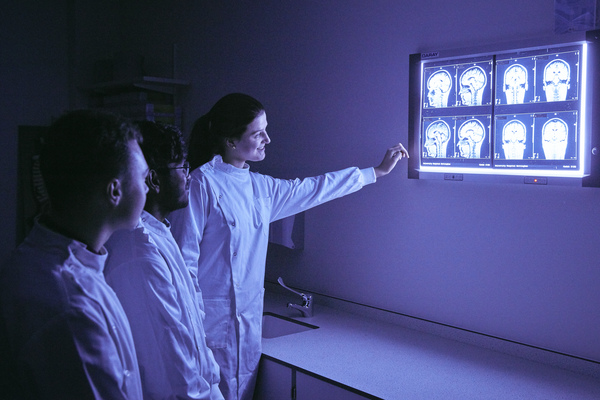

/prod01/university-of-lincoln-cdn-pxl/media/responsive2017/collegeofscience/medicalschool/Medical,OHD,Hero,Image.jpg )
